Choosing a mechanic is a lot like choosing a doctor. Instead of your physical health, though, you’re putting the long-term care and health of your vehicle in an expert’s care. Just like choosing a primary care doctor, it can take time to find the perfect fit for your family’s trusty vehicle. Here, we’ve compiled some questions to ask when you’re choosing an auto shop for your vehicle.
What to Ask When You’re Choosing an Auto Shop for Your Vehicle
Everyone is looking for something a little different out of their potential mechanic. You’ll want to consider everything from the location of the shop, the costs of services, the experience of the staff, and the cleanliness of the shop in addition to any personal preferences.
First, it’s important to consider the shop as a whole. Ask yourself these questions:
 Is the shop clean and tidy, or is it messy and disorganized?
Is the shop clean and tidy, or is it messy and disorganized?- How well was I treated when I entered? (Was I greeted, welcomed, or acknowledged in a friendly way?)
- Did the mechanics answer all of my questions in a professional and informative way?
- Did the mechanics make me feel uninformed or belittled about what maintenance my vehicle needs?
- Were all of my questions answered fully, or did it feel as though they were trying to evade significant questions?
- How professionally did they treat me and other customers?
Next, here are some questions to ask your mechanic. You may not need to ask all of these, but they’ll get you started on the right track.
 What certifications/training do your mechanics have? (And, is their training up-to-date?)
What certifications/training do your mechanics have? (And, is their training up-to-date?)- How much experience do your mechanics have?
- How much does an inspection or diagnostic cost?
- Can you help me keep my vehicle on its maintenance schedule?
- How do you plan to communicate with me while the vehicle is being repaired?
- What is your hourly rate?
- What extra fees can I expect with standard services?
- Can you show me what needs to be repaired?
- Can you explain the reasons and process for the recommended service?
- What are the long-term consequences of waiting to have the repairs performed?
- How long will it take to complete the service?
Don’t be afraid to ask questions – even ones that you might feel are silly. A good mechanic will answer anything you ask respectfully and with a positive, informative attitude.
If you feel as though the mechanics are evading your questions or, just as bad, not treating you respectfully, then it’s important to listen to your gut instinct and keep looking. There are plenty of auto shops to choose from, and although the one that’s closest to home is convenient, it simply may not be a good fit.
You may find it helpful to look online for reviews to see what other customers have said about their experience with a shop. If you see a consistent thread of complaints (or compliments!) or repeated references to a specific issue, then you may want to weigh this more heavily than a one-off complaint.
Armed with these questions, you’ll be able to establish baselines about what you’re looking for out of a mechanic’s shop before ever stepping through the door.
A relationship with your mechanic, much like your primary care doctor, is ideally going to last for the life of your vehicle. Your mechanics will be familiar with your car and have access to your vehicle’s repair history so that they can make the best recommendations as to future maintenance.
T3 Atlanta: Your Atlanta-area Nissan, Lexus, Infiniti, and Toyota Mechanic
T3 Atlanta specializes in Nissan, Lexus, Infiniti, and Toyota repairs. All of our mechanics are certified and experienced so you can rest assured that your car is getting the care that it needs. We’re always happy to answer any questions that you may have. We want to ensure that you can bring your car to us with confidence for years to come.
 The short answer about whether car airbags can be replaced is that it depends. Some vehicles have curtain or side airbags which further complicate the question. Some newer cars even have knee or rear airbags to reduce your chances of injury during a collision.
The short answer about whether car airbags can be replaced is that it depends. Some vehicles have curtain or side airbags which further complicate the question. Some newer cars even have knee or rear airbags to reduce your chances of injury during a collision. Newer vehicles are equipped with airbags that do not expire, or at least, not quite. The airbags are designed to last for the life of the vehicle.
Newer vehicles are equipped with airbags that do not expire, or at least, not quite. The airbags are designed to last for the life of the vehicle. Older vehicles generally feature airbags that work on a different system – if they have airbags at all. The first airbags appeared in the 1970’s. With the technology being so new, manufacturers at the time were uncertain how long airbags could last and still be effective.
Older vehicles generally feature airbags that work on a different system – if they have airbags at all. The first airbags appeared in the 1970’s. With the technology being so new, manufacturers at the time were uncertain how long airbags could last and still be effective. Buying a car is an investment, so it’s important that you do your research before you buy. The more informed you are, the better equipped you are to spot problems with candidates.
Buying a car is an investment, so it’s important that you do your research before you buy. The more informed you are, the better equipped you are to spot problems with candidates.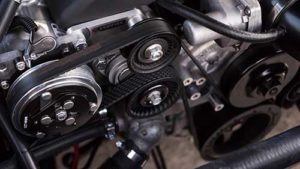 In addition to these more general research points, you should also take an in-depth look at the specific vehicle you plan to purchase. A car that has a lot of repairs, especially if they appear to be for the same thing, is at an increased chance at being a potential lemon.
In addition to these more general research points, you should also take an in-depth look at the specific vehicle you plan to purchase. A car that has a lot of repairs, especially if they appear to be for the same thing, is at an increased chance at being a potential lemon. While you may not be able to identify mechanical problems on your own, a visual inspection can still tell you a lot about the car. Check the inside and outside of the car to look for engine, structural, and water damage that can cause long-term problems. Of these, water damage is by far the worst from a long-term cost standpoint. After all, water and mechanical parts don’t mix!
While you may not be able to identify mechanical problems on your own, a visual inspection can still tell you a lot about the car. Check the inside and outside of the car to look for engine, structural, and water damage that can cause long-term problems. Of these, water damage is by far the worst from a long-term cost standpoint. After all, water and mechanical parts don’t mix! After-market accessories like mufflers, electronics, speakers, or other electrical system add-ons might sound attractive, but there are a lot of hidden dangers with these neat extras.
After-market accessories like mufflers, electronics, speakers, or other electrical system add-ons might sound attractive, but there are a lot of hidden dangers with these neat extras. There’s nothing like the excitement of new car ownership crashing to a stop because of an unexpected repair bill. T3 Atlanta recommends that you have any vehicle that you are strongly considering inspected before you buy. If the dealer you’re planning to shop with refuses to let the vehicle be inspected by an independent mechanic, that’s a red flag you should not ignore.
There’s nothing like the excitement of new car ownership crashing to a stop because of an unexpected repair bill. T3 Atlanta recommends that you have any vehicle that you are strongly considering inspected before you buy. If the dealer you’re planning to shop with refuses to let the vehicle be inspected by an independent mechanic, that’s a red flag you should not ignore. It’s possible that an overly enthusiastic pull on your parking brake can cause it to become stuck. In this case, the parking brake has become clamped against the brake shoes too hard and may actually require a professional to unstick.
It’s possible that an overly enthusiastic pull on your parking brake can cause it to become stuck. In this case, the parking brake has become clamped against the brake shoes too hard and may actually require a professional to unstick. Ice can actually freeze your parking brake in place. While this isn’t a common problem in the Atlanta area, it’s a possibility to keep in mind if you’re traveling out of town during cold weather.
Ice can actually freeze your parking brake in place. While this isn’t a common problem in the Atlanta area, it’s a possibility to keep in mind if you’re traveling out of town during cold weather. There are a lot of fluids in your car at a given time: transmission fluid, oil, brake fluid, and coolant, to name a few. Transmission fluid often appears dark, slick, and shiny like oil, but unlike oil, it usually has a burnt smell. Leaking transmission fluid generally appears around the front or middle of where your car is parked.
There are a lot of fluids in your car at a given time: transmission fluid, oil, brake fluid, and coolant, to name a few. Transmission fluid often appears dark, slick, and shiny like oil, but unlike oil, it usually has a burnt smell. Leaking transmission fluid generally appears around the front or middle of where your car is parked.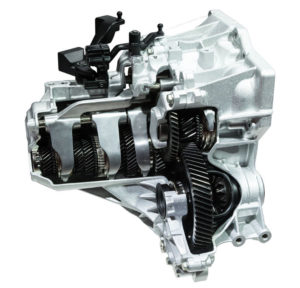 Gear slippage refers to a few different possible symptoms. These directly impact how your car performs. In turn, they can lead to safety issues if your engine performance means you cannot respond promptly to changes in traffic.
Gear slippage refers to a few different possible symptoms. These directly impact how your car performs. In turn, they can lead to safety issues if your engine performance means you cannot respond promptly to changes in traffic.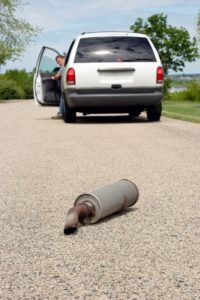 The exhaust system filters emissions that are produced by the engine, but it also helps dampen the noise produced by the engine itself. If your engine is making a considerable amount of noise, or if your muffler doesn’t seem to be dampening noise like it used to, your exhaust system may be suspect.
The exhaust system filters emissions that are produced by the engine, but it also helps dampen the noise produced by the engine itself. If your engine is making a considerable amount of noise, or if your muffler doesn’t seem to be dampening noise like it used to, your exhaust system may be suspect. When working properly, your exhaust system should prevent against a noticeable amount of exhaust smells.
When working properly, your exhaust system should prevent against a noticeable amount of exhaust smells.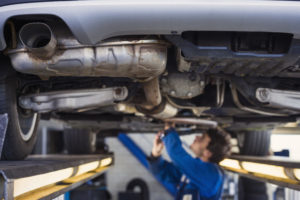 The exhaust system is constantly exposed to the road, making it vulnerable to external damage from rain, snow, potholes, debris, and salt corrosion. Unless you happen to have a car lift in your garage, it’s not always easy to detect when damage has happened to the bottom of your vehicle.
The exhaust system is constantly exposed to the road, making it vulnerable to external damage from rain, snow, potholes, debris, and salt corrosion. Unless you happen to have a car lift in your garage, it’s not always easy to detect when damage has happened to the bottom of your vehicle.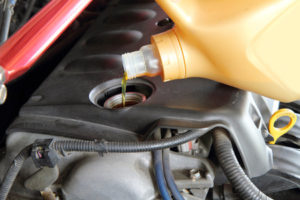 Automotive oil reservoirs are designed to hold a bit of extra oil to compensate for fluid expansion in warm conditions, and to help prevent damage to the engine in case excessive oil is added to the engine. As a result, half a quart may not cause any damage to your engine, but much more than that could lead to engine damage.
Automotive oil reservoirs are designed to hold a bit of extra oil to compensate for fluid expansion in warm conditions, and to help prevent damage to the engine in case excessive oil is added to the engine. As a result, half a quart may not cause any damage to your engine, but much more than that could lead to engine damage. The most important thing to do when your car has been overfilled with oil is to drain the excess amount in the reservoir before you drive the vehicle again.
The most important thing to do when your car has been overfilled with oil is to drain the excess amount in the reservoir before you drive the vehicle again. The engine oil is most likely the car fluid you will change most often. You’ll no doubt hear a lot of differing opinion about how often your car can or should go between oil changes.
The engine oil is most likely the car fluid you will change most often. You’ll no doubt hear a lot of differing opinion about how often your car can or should go between oil changes.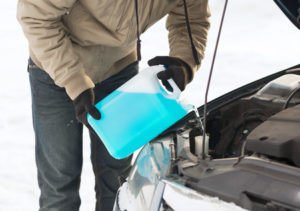 Antifreeze, also known as coolant, is a fluid that is normally topped off throughout the year – especially right before summer and winter. This essential fluid keeps your car running cool and also prevents pipes and hoses from freezing.
Antifreeze, also known as coolant, is a fluid that is normally topped off throughout the year – especially right before summer and winter. This essential fluid keeps your car running cool and also prevents pipes and hoses from freezing.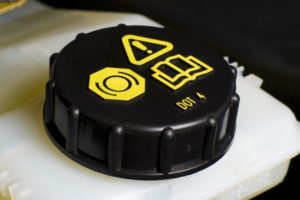 The power steering fluid in your vehicle ensures that you can turn your wheel easily and with little effort. Over time, this fluid may become low or need changing altogether. The biggest telltale sign is when you turn the wheel and hear a creak. The next largest sign is that it’s getting harder to turn the wheel at all.
The power steering fluid in your vehicle ensures that you can turn your wheel easily and with little effort. Over time, this fluid may become low or need changing altogether. The biggest telltale sign is when you turn the wheel and hear a creak. The next largest sign is that it’s getting harder to turn the wheel at all.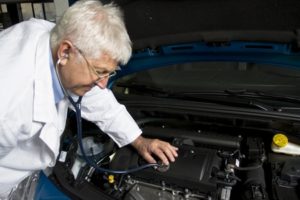 Maybe you’ve moved away and can no longer take your car to your trusted mechanic. Maybe you have recently purchased a brand that your mechanic does not service. Whatever the reason, you’re needing repairs and not sure about the quote you received. Perhaps it’s time to get a second opinion for car maintenance.
Maybe you’ve moved away and can no longer take your car to your trusted mechanic. Maybe you have recently purchased a brand that your mechanic does not service. Whatever the reason, you’re needing repairs and not sure about the quote you received. Perhaps it’s time to get a second opinion for car maintenance.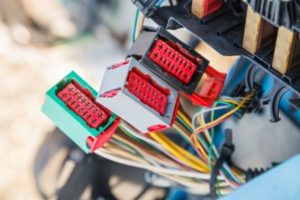 The reasons for car electrical problems can be many. Your vehicle might have a loose electrical connection. A blown fuse will cause problems. Sometimes, it’s that one part of the system is constantly drawing power, even when the engine is shut off, and it slowly drains the battery.
The reasons for car electrical problems can be many. Your vehicle might have a loose electrical connection. A blown fuse will cause problems. Sometimes, it’s that one part of the system is constantly drawing power, even when the engine is shut off, and it slowly drains the battery.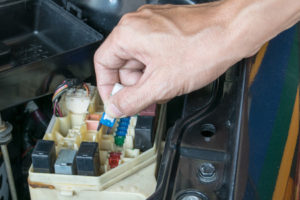 Blown fuses: When you constantly must replace blown fuses, this indicates something in the electrical system is sending too much current through those fuses.
Blown fuses: When you constantly must replace blown fuses, this indicates something in the electrical system is sending too much current through those fuses.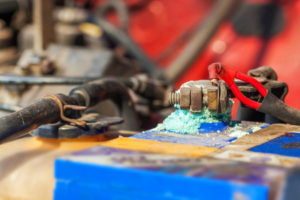 Pop the hood and inspect the battery. If the terminals have any white gunk or other debris on them, clean them thoroughly with a wire brush. Corrosion can bring your car’s electrical system to its knees. If that isn’t the cause, wiggle the battery cables to see if they’re loose.
Pop the hood and inspect the battery. If the terminals have any white gunk or other debris on them, clean them thoroughly with a wire brush. Corrosion can bring your car’s electrical system to its knees. If that isn’t the cause, wiggle the battery cables to see if they’re loose.








